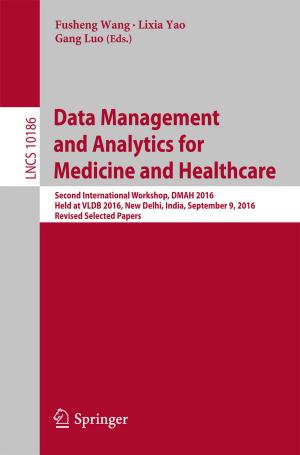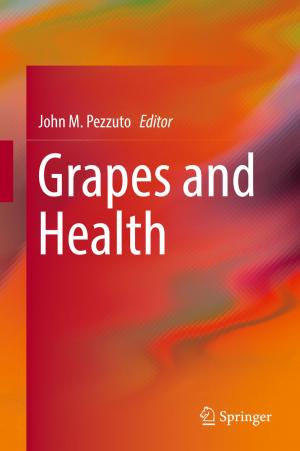Insight into Influenza Viruses of Animals and Humans
Nonfiction, Health & Well Being, Medical, Medical Science, Microbiology, Ailments & Diseases, Infectious Diseases, General| Author: | Sanjay Kapoor, Kuldeep Dhama | ISBN: | 9783319055121 |
| Publisher: | Springer International Publishing | Publication: | March 31, 2014 |
| Imprint: | Springer | Language: | English |
| Author: | Sanjay Kapoor, Kuldeep Dhama |
| ISBN: | 9783319055121 |
| Publisher: | Springer International Publishing |
| Publication: | March 31, 2014 |
| Imprint: | Springer |
| Language: | English |
This book provides salient information on all aspects of influenza/flu viruses affecting animals and humans. It specifically reviews the properties and replication of influenza viruses; their evolution and emergence; epidemiology; role of migratory birds in disease transmission; clinical signs in humans, animals and poultry; pathogenesis and pathogenicity; public health importance and potential threats; diagnosis; prevention and control measures; and pandemic preparedness. Influenza/flu viruses evolve continuously and jump species causing epidemics as well as pandemics in both human and animals. During the past 150 years, various strains of influenza virus like the Spanish flu, Asian flu, Hong Kong flu, bird flu and swine flu were responsible for high mortality in humans as well as birds. High mutation rates, antigenic shifts, drifts, reassortment phenomena, and the development of antiviral drug resistance all contribute to ineffective chemotherapy and vaccines against influenza viruses. Due to their devastating nature, high zoonotic implications and high mortality in humans and poultry, they have a severe impact on the socioeconomic status of countries. Disease awareness, rapid and accurate diagnosis, surveillance, strict biosecurity, timely adoption of appropriate preventive and control measures and pandemic preparedness are crucial to help reduce virus transmission, thus reducing clinical cases, deaths and pandemic threats.
This book provides salient information on all aspects of influenza/flu viruses affecting animals and humans. It specifically reviews the properties and replication of influenza viruses; their evolution and emergence; epidemiology; role of migratory birds in disease transmission; clinical signs in humans, animals and poultry; pathogenesis and pathogenicity; public health importance and potential threats; diagnosis; prevention and control measures; and pandemic preparedness. Influenza/flu viruses evolve continuously and jump species causing epidemics as well as pandemics in both human and animals. During the past 150 years, various strains of influenza virus like the Spanish flu, Asian flu, Hong Kong flu, bird flu and swine flu were responsible for high mortality in humans as well as birds. High mutation rates, antigenic shifts, drifts, reassortment phenomena, and the development of antiviral drug resistance all contribute to ineffective chemotherapy and vaccines against influenza viruses. Due to their devastating nature, high zoonotic implications and high mortality in humans and poultry, they have a severe impact on the socioeconomic status of countries. Disease awareness, rapid and accurate diagnosis, surveillance, strict biosecurity, timely adoption of appropriate preventive and control measures and pandemic preparedness are crucial to help reduce virus transmission, thus reducing clinical cases, deaths and pandemic threats.















